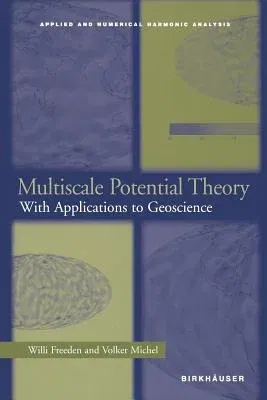Willi Freeden
(Author)Multiscale Potential Theory: With Applications to Geoscience (Softcover Reprint of the Original 1st 2004)Paperback - Softcover Reprint of the Original 1st 2004, 12 October 2011

Qty
1
Turbo
Ships in 2 - 3 days
In Stock
Free Delivery
Cash on Delivery
15 Days
Free Returns
Secure Checkout
Part of Series
Applied and Numerical Harmonic Analysis
Print Length
510 pages
Language
English
Publisher
Birkhauser
Date Published
12 Oct 2011
ISBN-10
1461273951
ISBN-13
9781461273950
Description
Product Details
Authors:
Book Edition:
Softcover Reprint of the Original 1st 2004
Book Format:
Paperback
Country of Origin:
NL
Date Published:
12 October 2011
Dimensions:
23.39 x
15.6 x
2.74 cm
ISBN-10:
1461273951
ISBN-13:
9781461273950
Language:
English
Location:
Boston, MA
Pages:
510
Publisher:
Weight:
739.35 gm

